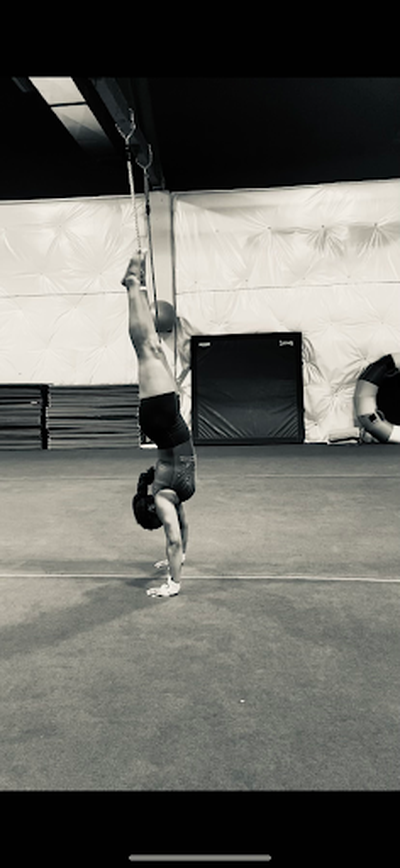When Arnetta Mitchell moved to Spokane from California at the age of 6, she brought with her a spark – one that had been lit while watching her first Olympic gymnastics meet on television. That moment ignited a love for the sport that would not only shape her childhood but influence the course of her adult life.
“Gymnastics just made sense,” she says. “I was always bouncing off things, and my mom thought it would be the perfect sport for me. She supported it from the start – even if we had to search all over Nine Mile to find a place where I could actually train.”
That early support – and Arnetta’s determination – set her on a path that would see her evolve from a young gymnast inspired by trailblazers like Dominique Dawes to a coach and mentor dedicated to making space for others. Today, Arnetta coaches the gymnastics team at North Central High School and works with youth at Evergreen Gymnastics, where the school program holds its practices due to a lack of school-owned facilities.
In a sport where Black people are historically underrepresented, Arnetta recalls how powerful it was to see Dominique Dawes on the Olympic stage.
“I don’t remember them saying it on TV, like, ‘This is a Black gymnast,’” she explains. “But I noticed. She looked like me, and that mattered. It made me think – if she can do it, maybe I can too.”
Now, as a coach, Arnetta sees herself not just as a guide to physical technique, but as a mirror to possibilities – especially for young athletes who may never have imagined themselves in leotards or on balance beams.
“A lot of kids on my team have never done gymnastics before,” she says. “But this sport is mental. It’s about overcoming fear. And I want them to know that it doesn’t matter how you start – you belong here.”
For Arnetta, gymnastics is more than a sport. It’s a metaphor for possibility. It’s a reminder that we don’t have to fit into anyone’s limited expectations of what Black people can do or where we belong.
“I don’t believe in staying in boxes,” she says. “A lot of times, we don’t see ourselves in certain places, so we assume it’s not for us. But the truth is, we are capable of so much more.”
Her dream? To build a community space in Nine Mile that offers gymnastics, dance, and other recreational outlets for youth – including non-sports options like arcade games or creative workshops. “Small towns don’t have a lot for kids,” she says. “Even Spokane has limited spaces. I want to change that.”
When asked what advice she’d give to someone who’s the only Black person – or only person of color – in a recreational space, Arnetta doesn’t hesitate: “Do it anyway.”
Whether it’s stepping onto the mat or into a field where few others look like you, Arnetta believes that simply showing up can be revolutionary. “It helps people see what’s possible,” she says. This, she contends, helps communities grow.”
In the end, it’s not just about gymnastics. It’s about movement – in body, mind, and spirit. It’s about reimagining the spaces we’re allowed to occupy and creating new ones when they don’t yet exist.
“I just love gymnastics,” Arnetta says. “It teaches you to try even when something looks scary. It helps you grow. And more than anything, it reminds you that you’re stronger than you think.”
